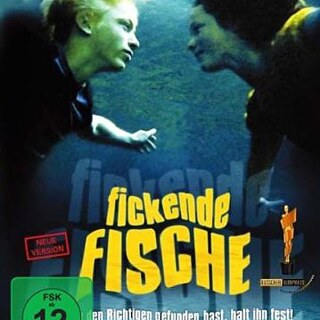Description
So now it's "Fickende Fische" (Do fish do it?). Maybe it's no coincidence that it's again a young woman directing, maybe it really does exist, the "female gaze". Again, it's about very young people. Jan (Tino Mewes) and Nina (Sophie Rogall) are still at school. They are 15 and 16, and the love that develops between them is still characterized by insecurity and volatility, by focusing on oneself, because, as we know, one is the strangest to oneself in these early years. The two of them have a rather hard time getting comfortable with each other. This is not so much because of how different they are: Nina seems quite perky, at peace with herself for the most part, and she is not irritated by her father's new girlfriend or by her disinterested siblings. She goes her own way, while Jan, as quickly becomes clear, is all too well protected by his parents, and is also rather insecure in other ways. Only his grandfather understands him, and his fish. The fact is, however, that this insecurity has a good reason because Jan has AIDS. The way director Almut Getto handles this subject in her debut deserves admiration. Because it never becomes embarrassing, lecturing or overcorrect, this topic always subordinates itself to the overall story.
Thus, "Fickende Fische" has become a tenderly poetic love story that develops quite hesitantly, unobtrusively told. One accompanies the two main characters - played very convincingly and aptly by their young actors - through a piece of their lives, watches them have a picnic, argue with their parents, observes how they find each other and lose each other again - and find each other again, how they eventually paint themselves blue.
But even this is not a moment in which this film is too much applied to "wonderfully crazy", make up "cinema moments". Rather, everything actually has its reason. Despite minor script flaws and the one or other slightly wrong tone, "Fickende Fische" therefore, possesses what is most important in cinema: authenticity. It really does something.



